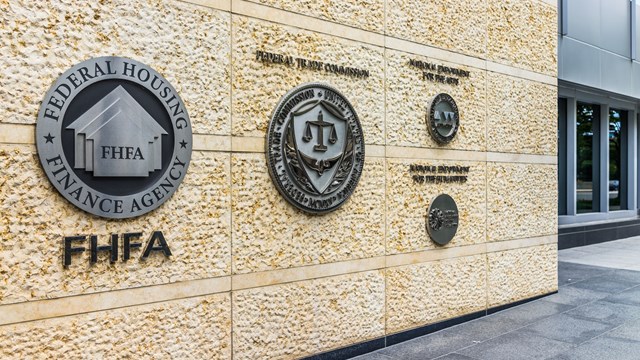If you live in, manage, otherwise work for, or even regularly drive by a residential cooperative or condominium building, chances are you're familiar with Section 207 of the Telecommunications Act of 1996.
Section 207 is the law that grants the Federal Communications Commission (FCC) the authority to preempt state, local, and private restrictions impairing viewers' ability to receive video programming services from television broadcast signals, direct broadcast satellites (DBS), and multi-channel multi-point distribution systems (MMDS).
In plain English, this means that Section 207 forbids just about anyone from interfering with a person's right to receive satellite television service. Hence the growing proliferation of satellite dish antennas on balconies, decks, patios, roofs, and fences everywhere. They're not the prettiest things in the world—which is why some communities are looking into master satellite television systems.
Master Plan
In order to implement Section 207, the FCC adopted the Over-the-Air Reception Devices (OTARD) Rule, which prohibits restrictions that unreasonably prevent, delay, or increase the cost of antenna installation or otherwise interfere with the reception of television programming signals. Thus, residents of co-ops, condos, and homeowner associations have the right to install DBS and MMDS antennas one meter or less in diameter, as well as television broadcast antennas of any size on individually-owned property or property, in which they have a direct or indirect ownership interest and exclusive use and control. In the case of apartments and townhomes in a community association, the areas where the owner has the right to install an antenna typically include their balcony, deck or patio.
If you believe that these antennas are diminishing the aesthetic appeal of your community and even compromising the physical integrity of your property, you're certainly not alone. However, thanks to Section 207 and the OTARD Rule, there isn't much your co-op or condo can do to restrict the installation of individual antennas—even if such installations violate architectural restrictions or aesthetic standards. What you can do is try to offer your residents access to the same broadcast signals minus all the antennas.
How? By exploring the possibility of having a satellite television company provide television service to your residents. The idea is that the installation of a single master antenna or several smaller antennas throughout your community is better than a patchwork of antennas appearing everywhere. You'd even be helping your residents who, because of the location of their home, are otherwise unable to obtain satellite television signals due to the location of their unit but will be able to obtain the broadcasts of their choice through the master system. Master antennas are applicable to detached single family home communities as well as to apartment and townhome communities. If a co-op or condo finds it aesthetically undesirable for residents to install antennas on the roof of their balconies or elsewhere on their property, it may prohibit individual antennas if it makes satellite television service available through a master antenna; provided that there is no delay, increase in cost nor a reduction in the programming signals.
This may sound complicated, but the technology—the hardware—is actually the easiest part. Satellite television service providers are often willing to provide much of the necessary infrastructure, including the master antennas and control boxes at no cost to the co-op in exchange for the right to market satellite television to the community. Typically, the provider requires two things:
The co-op or condo must sign an exclusive service agreement that prohibits other satellite television providers from offering services to residents.
The provider must be given access to the internal cable wiring already running through the common element areas of the building or development—known as "home run wiring"—in order to direct its signals to individual apartments or units.
Exclusive Service
Your building or homeowner community is probably already served by a local cable television company that, for obvious reasons, may object to competition from another television service provider. If your existing cable company has an exclusive service agreement with your co-op or condo, which it most likely obtained from the developer of your building, the cable company has the right to prohibit any another television providers from doing business with you. Indeed, many of these agreements give the incumbent cable company the exclusive right to provide television service to a building community for as long as the cable company owns a local franchise.
However, since the primary objectives of the Telecommunications Act are to promote competition among television service providers and to provide citizens with the freedom to obtain television services of their choice, the FCC had been considering a rule amendment to limit the duration of exclusive service agreements. Such a rule would enable many more communities to introduce alternative television service providers to their residents. Unfortunately, in the FCC's most recent ruling on the subject issued in January 2003, the FCC declined to limit the duration of exclusive service agreements in the absence of enough evidence demonstrating that such a restriction would improve the competitive marketplace for television service.
If your incumbent cable company provider does not have a legally enforceable right to continue to service your building community, you can terminate the incumbent's right of service and introduce a new television service provider, a process that is outlined in the FCC's inside cable wiring regulations, adopted in 1997.
Home Run Wiring
If you don't have an exclusive service agreement, the next step is to determine whether a new provider can utilize your existing home run wiring. This is crucial, because usually, it will only make economic sense for an alternative provider to offer master service to your building community if it can use the existing infrastructure.
To start, turn to the FCC's inside cable wiring rules, which, among other things, are intended to facilitate a co-op, condo or (or building owner's) attempt to convert to a new television service provider or to permit multiple providers to compete for individual subscribers within the building. In most multi-dwelling communities—including condominiums and cooperatives—cable television service is provided from a control box located on the outside of each building; individual wires lead from the lock box, through the common element areas of a building, and into individual units. In general, the FCC defines as home run wiring the sections of cable located between the lock box and individual units.
The inside wiring rules specifically address the ownership and control of both cable home wiring—the wiring inside a unit—and home run wiring. They outline two detailed procedures for the transfer of wiring from an incumbent cable provider to the co-op or to another provider when the incumbent no longer has a legally enforceable right to continue servicing the building. One procedure is used when a co-op or condo informs the incumbent cable company that its access to the entire community will be terminated in order to permit an alternative provider to take its place; this is the "building-by-building" procedure. The second procedure is used when an association informs the incumbent company that its access to individual units will be terminated as subscribers elect to receive service from a competing alternative provider; this is the "unit-by-unit" procedure. Both procedures require that you send prior written notice to your incumbent company of your decision to invoke the FCC's disposition rules, and also that you provide the company with the option to: remove the wiring and restore the property; abandon the wiring without disabling it; or sell the wiring to the co-op, condo or the new provider.
In most cases, the incumbent provider will not choose to take out the wiring because of the removal and restoration costs. If it does in fact abandon the wiring, the company must leave it in a condition that allows your new provider to begin service within 24 hours.
Static From Incumbents
Of course, it's not usually that easy. Incumbent cable companies, not surprisingly, are reluctant to cooperate with a co-op or condo's decision to invoke the home run wiring disposition rules. For example, at least two major cable companies have rejected the notion that the rules are applicable in New Jersey. The gist of one company's technical, legalistic argument is that the FCC has said that its disposition rules don't apply in states with a mandatory access statute that grants a permanent, enforceable right for incumbent companies to maintain their home run wiring on the premises. This company in question also argues that New Jersey's mandatory access statute gives it the right to continue to service the community in perpetuity. Similarly, another company claims that a twenty-year-old letter of agreement exists between the cable company's predecessor and the developer of the community. The written agreement simply gives permission to the cable company to install the wiring. The counsel to the cable company claims that the agreement evidences permanent ownership of the home run wiring by the cable company.
These cases highlight one of the biggest problems of television wiring: Co-ops and condos are often reluctant to wage a legal battle against large cable companies—and the companies are fully aware of this. The longer an incumbent company can postpone the loss of its subscribers, the better off it will be financially.
Given this reluctance, it's probably a good thing that the inside cable wiring rules require that any contract between a television service provider and a co-op or condo address the disposition of home run wiring when the contract ends. Still, your co-op or condo should consider this issue carefully when crafting an agreement with a service provider. They should also proceed with caution when considering long-term, exclusive service contracts or other agreements that might limit one's ability to access inside wiring or add new service providers as technologies in the marketplace advance.
As the popularity and demand for satellite television service continues to grow, more and more co-ops, condos and other common-interest residential communities will consider the master antenna alternative. There's no reason they shouldn't—as long as, while they explore this complex issue, they take care not to get their wires crossed.
Daniel M. Murphy is a partner in the law firm of Greenbaum, Rowe, Smith, Ravin, Davis & Himmel LLP, in Woodbridge, New Jersey. He concentrates his practice in the areas of community association law, land use, and real estate development.







Leave a Comment